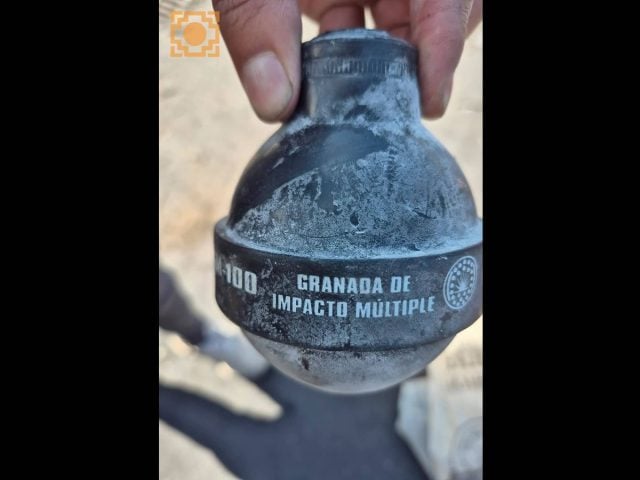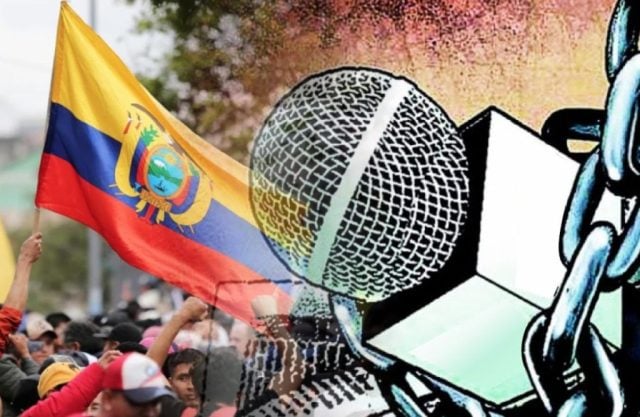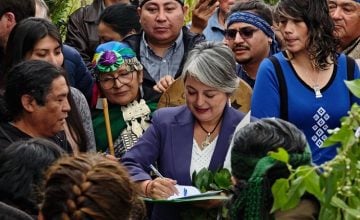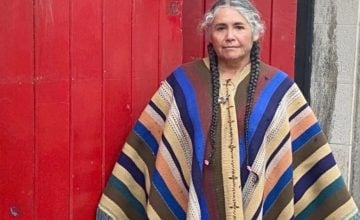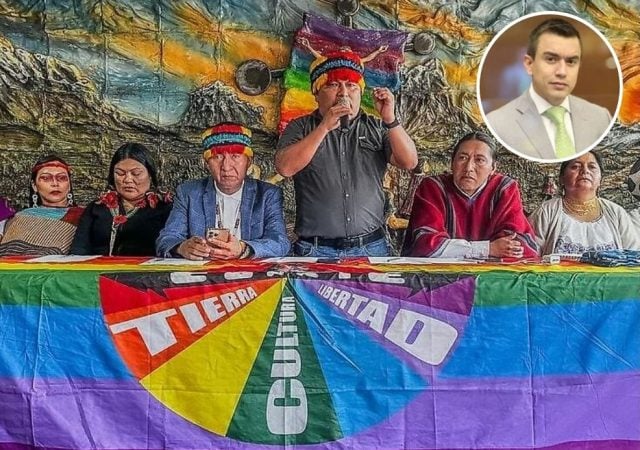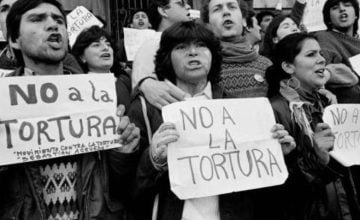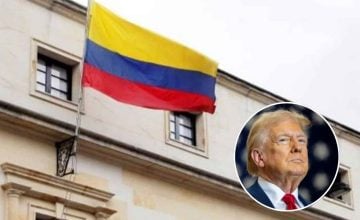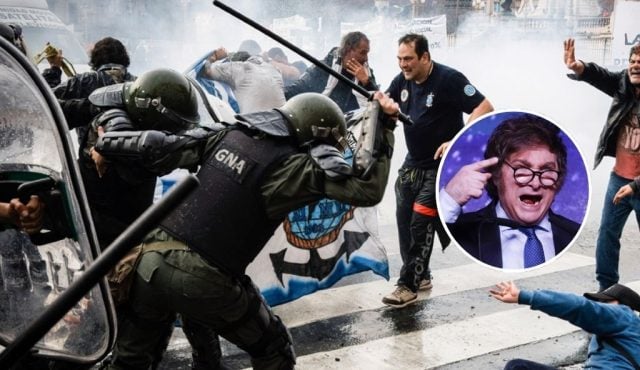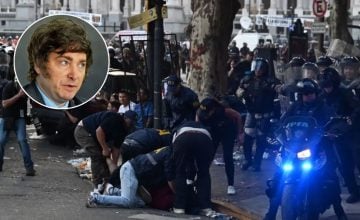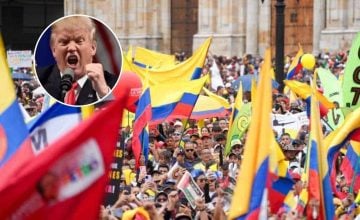Multiple social and human rights organizations have denounced an indiscriminate military crackdown in Imbabura province in northern Ecuador.
According to reports from the Confederation of Indigenous Nationalities of Ecuador (CONAIE) and community media, a government convoy — officially billed as the \»Humanitarian Convoy\» — entered Indigenous communities in the early hours of Tuesday, leaving 22 people injured (one critically) and four detained.
\»We denounce the indiscriminate military repression in Imbabura. A so-called ‘humanitarian’ government convoy has attacked Indigenous communities, leaving 22 injured (one seriously) and four detained. We demand the immediate end of the repression and respect for human rights,\» the Confederation of Indigenous Nationalities of Ecuador (CONAIE) said in a statement released this morning.
Local communities have renamed the operation the \»Convoy of Death,\» alleging the use of lethal weapons, tear gas, riot-control munitions and pursuits onto private property. Testimonies gathered by local radio stations say uniformed officers are blocking medical care for the wounded and surrounding hospitals to detain demonstrators.
More Than 20 Days of Nationwide Strike: A Country Under Repression
The nationwide strike, called on September 22 by CONAIE, the Unitary Workers’ Front (FUT), the National Students’ Coordinator (CONAES) and other social organizations, has reached day 23 of protests against Decree 126, which eliminates diesel and gasoline subsidies and drives up the cost of living for millions of Ecuadorians.
The protests also decry shortages of medical supplies, the legalization of mining and oil extraction in national reserves — including the Galápagos — and what watchdogs call systematic human rights violations since President Daniel Noboa’s government declared an \»Internal Armed Conflict.\»
Since the start of the demonstrations, national and international organizations have warned about excessive force and racist actions by security forces. On October 12 in Otavalo, members of the Kichwa people were assaulted, with detainees having their hair cut forcibly during arbitrary arrests.
Quito Militarized Amid Official Silence
Meanwhile, Ecuador’s capital, Quito, remains heavily militarized, with thousands of demonstrators concentrated in the Historic Center and peripheral neighborhoods. The chants echoing in the streets — \»Out, Noboa, out,\» \»We are not terrorists\» and \»No one will silence us\» — reflect the widespread backlash to the government’s policies and anger at the crackdown.
The Ecumenical Human Rights Commission (CEDHU) denounced that army and police operations represent a \»disproportionate and illegal use of force against citizens exercising their right to protest under the Constitution and international treaties.\»
According to the Human Rights Violations Monitoring report by the Alliance of Human Rights Organizations of Ecuador, covering September 12 to October 12, 2025 and updated as of October 13 at 00h00, there were 310 human rights violations recorded in the context of #ParoNacional2025, including 107 people detained, 144 injured, 12 temporarily disappeared and 1 dead.
For its part, the National Police officially acknowledged 121 detentions, among them minors — a figure noticeably lower than that documented by the organizations.
Eyewitness Accounts and International Appeals
\»This government came to the people with lies — to deceive us. I want this government to go, leave now and let the Ecuadorian people live in peace,\» Guañuñ, an Indigenous protester participating in the Quito mobilizations, told teleSUR.
Various human rights organizations and networks requested the urgent presence of international observers in Ecuador. The UN, the European Union and the Inter-American Commission on Human Rights (IACHR) expressed concern about the escalation of state violence and demanded that the Noboa government guarantee protesters’ rights and reestablish dialogue with communities.
A Country Under Economic and Political Strain
President Noboa’s economic model, based on fiscal adjustments, subsidy eliminations and an expansion of extractive industries, has increased rural poverty, food inflation and youth unemployment, disproportionately affecting Indigenous and peasant communities.
In Otavalo, known for its artisan market and community economy, the military incursion has paralyzed commercial and tourist activity, causing economic losses and a pervasive climate of fear.
Amid intensifying violence, CONAIE, the FUT and territorial organizations convened an emergency national assembly to define new strategies of resistance in the face of the criminalization of the Indigenous and popular movement.
